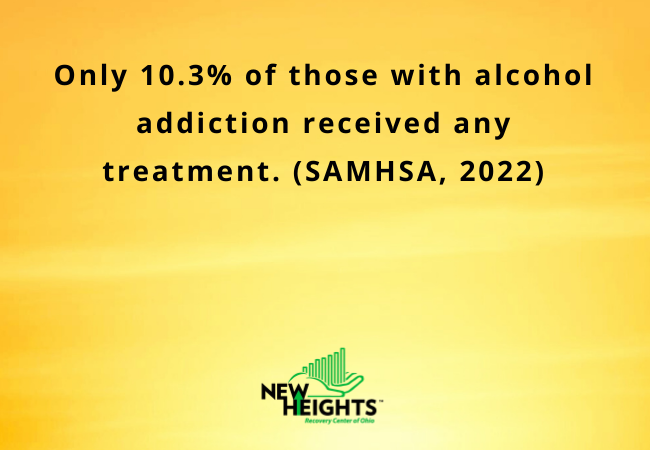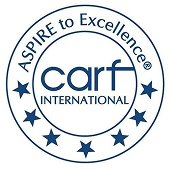Making the decision to seek help for alcohol addiction is a life-changing step—one that requires not only courage, but guidance. For individuals and families navigating the world of addiction recovery, one of the most pressing questions becomes:
“How do I choose the right alcohol treatment center?”
With countless options available, it’s important to understand what truly matters: the right center will offer more than just a program. It will offer a pathway to healing, tailored to your individual needs, mental health history, and recovery goals.
At New Heights Recovery, we know that successful treatment is never one-size-fits-all. Whether you’re looking for a highly structured program like a Partial Hospitalization Program in Columbus, Ohio or a flexible option like an Intensive Outpatient Program, this guide will help you make a confident, informed decision.
1. Identify the Severity of the Alcohol Use Disorder
Before selecting a treatment center, the first step is to understand the severity of the addiction. This affects which level of care is most appropriate:
Mild to Moderate Alcohol Use Disorder
- Occasional binge drinking
- Emotional dependence on alcohol
- Little to no physical withdrawal symptoms
- Might still be functioning at work or home
A structured outpatient or IOP program is often ideal for this level, especially if there’s a supportive home environment.
Moderate to Severe Alcohol Use Disorder
- Daily or near-daily drinking
- Physical withdrawal symptoms (tremors, insomnia, nausea)
- Loss of control and unsuccessful attempts to quit
- Impacted relationships, job loss, health issues
A Partial Hospitalization Program (PHP) or inpatient detox may be necessary to begin recovery safely and stabilize physically and emotionally.
2. Evaluate Treatment Options by Level of Care
Understanding the different types of treatment is essential in choosing the right fit.
Inpatient Treatment / Residential Rehab
- 24/7 medical and emotional care
- Ideal for those needing detox and total immersion
- Usually lasts 30–90 days
Partial Hospitalization Program (PHP)
- Offers structured treatment during the day (20–30 hours/week)
- Return home or to a sober living environment in the evening
- Great for those transitioning from inpatient care or requiring more than outpatient therapy
Intensive Outpatient Program (IOP)
- Includes 9–15 hours of weekly therapy, spread across 3–5 days
- Allows clients to work, attend school, or care for family while in treatment
- Ideal for individuals with mild to moderate alcohol use disorder
Outpatient Therapy
- 1–3 hours per week
- Best for aftercare or individuals in sustained recovery
At New Heights Recovery, we specialize in both PHP and IOP in Columbus, Ohio, offering step-down care options that grow with each client’s progress.
3. Look for Evidence-Based Treatment Methods
The best alcohol treatment centers don’t rely on guesswork—they use scientifically supported, evidence-based therapies proven to help people change their behavior and maintain sobriety.
Look for Programs Offering:
- Cognitive Behavioral Therapy (CBT)
Focuses on identifying and changing negative thought patterns tied to alcohol use. - Dialectical Behavior Therapy (DBT)
Teaches emotional regulation, distress tolerance, and mindfulness. - Motivational Interviewing (MI)
Helps clients build intrinsic motivation for change. - Trauma-Informed Care
Addresses the root emotional pain that often fuels addiction. - Relapse Prevention Planning
Teaches coping skills, identifying triggers, and building support systems.
New Heights Recovery uses all of the above within a highly individualized framework—ensuring clients receive care aligned with their personal story and goals.
4. Make Sure the Facility Offers Dual Diagnosis Treatment
Alcohol addiction often coexists with mental health disorders such as:
- Depression
- Anxiety
- PTSD
- Bipolar disorder
- ADHD
This is known as a dual diagnosis or co-occurring disorder. If left untreated, the mental health component can trigger relapse or interfere with recovery.
A quality treatment center should offer integrated mental health care provided by licensed professionals.
At New Heights Recovery, our Addiction Treatment Programs in Columbus, Ohio include psychiatric assessments, medication management, and therapy designed specifically for clients with dual diagnoses.
5. Check the Staff Credentials and Accreditation
Your recovery journey should be guided by trained professionals with the right expertise.
Verify the Center Has:
- State Licensure
- Accreditation from The Joint Commission or CARF
- Licensed Therapists (LPC, LCSW, etc.)
- Medical professionals (MD, NP, RN)
- Specialized addiction counselors (CADC, LCDC)
These credentials ensure that the facility is held to high standards for safety, ethics, and effectiveness.
6. Look at Program Flexibility and Customization
Your life, schedule, and recovery needs are unique—your treatment should be too.
Ask if the program offers:
- Flexible scheduling (daytime/evening options)
- Customized treatment plans based on assessments
- Family involvement in therapy or education
- Aftercare planning and alumni support
- Culturally competent and LGBTQ+ inclusive care
At New Heights Recovery, we provide flexible, adaptive care that evolves with each client’s progress. Whether in PHP or IOP, you receive individualized support, not a cookie-cutter plan.

Red Flags to Avoid in an Alcohol Treatment Center
While searching, watch for these warning signs:
- Lack of accreditation or licensing
- No individualized treatment plans
- One-size-fits-all group therapy without clinical structure
- Unrealistic promises or “quick fixes”
- Hidden costs or lack of transparency about pricing
Recovery is a long-term commitment, and the right center will offer realistic, honest, and research-backed treatment from the start.
Why Choose New Heights Recovery?
As a leading provider of Substance Abuse Treatment in Columbus, Ohio, we pride ourselves on providing:
- Evidence-based therapies including CBT, DBT, and trauma-informed care
- Licensed and compassionate clinicians who specialize in alcohol recovery and mental health
- Flexible, step-down care through PHP and IOP
- A supportive, nonjudgmental community environment
- A focus on long-term recovery, not short-term results
We treat every client with dignity, respect, and the belief that healing is always possible—no matter your starting point.
Conclusion
Choosing an alcohol treatment center is about more than finding a program—it’s about finding a team that will support, guide, and walk with you through your transformation. With the right blend of professional care, evidence-based therapy, and personalized support, recovery becomes not just a possibility—but a reality.
At New Heights Recovery, we’re here to help you or your loved one take that first courageous step toward lasting change. Call us at 866-514-6807 to learn more about our Addiction Treatment Programs in Columbus, Ohio and discover the best level of care for your unique journey.
Frequently Asked Questions (FAQ)
What should I look for in an alcohol treatment center?
Look for licensed, accredited facilities that offer personalized treatment plans, evidence-based therapy, dual diagnosis care, and step-down options like PHP or IOP.
How do I know what level of care I need—IOP, PHP, or inpatient?
A clinical assessment is the best way to determine the appropriate level. Generally, IOP is best for mild to moderate needs, PHP for more structure, and inpatient for severe cases.
What’s the difference between PHP and IOP?
PHP offers 20–30 hours of care per week with daily therapy sessions, while IOP provides 9–15 hours weekly over 3–5 days. Both are non-residential and flexible.
Should I choose a program that includes mental health treatment?
Yes. Many people with alcohol use disorder also have mental health conditions. A program that treats both is called dual diagnosis and improves recovery outcomes.
How does New Heights Recovery personalize treatment?
We conduct a full clinical assessment and create individualized care plans, offering CBT, DBT, trauma therapy, group counseling, family involvement, and relapse prevention.
What types of therapy are used in treatment?
Our programs use Cognitive Behavioral Therapy (CBT), Dialectical Behavior Therapy (DBT), group therapy, trauma-informed counseling, and motivational interviewing.




